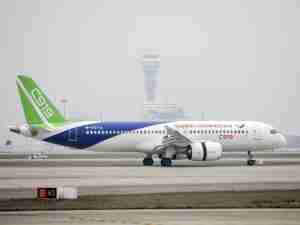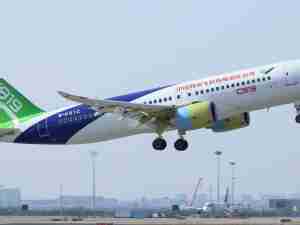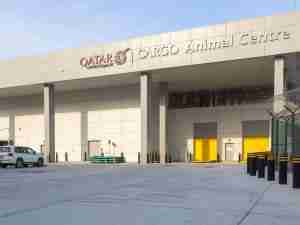Bombardier Takes Twin Hits in U.S. Jet Levy, Rival Rail Deal
By: | Sep 27 2017 at 08:34 AM | Air Cargo | Intermodal
Bombardier Inc. is facing one of its biggest crises in years after a punitive ruling from the U.S. threatened to make the Canadian manufacturer’s key C Series jet all but unsellable and its train operations were left isolated by a deal between European rivals.
Prospects for the C Series, which cost at least $6 billion to develop, were hobbled by the U.S. Commerce Department’s preliminary decision to levy import duties of 220 percent over claims of improper subsidies. The plane has already struggled to compete with Boeing Co.’s 737, and the move threatens to upend deliveries due next year to Delta Air Lines Inc., which ordered at least 75 jets with a list value of more than $5 billion.
On the rail side, Bombardier was left out in the cold as hours before the Commerce Department’s announcement, Germany’s Siemens AG and France’s Alstom SA agreed to merge their rail businesses in a deal that gives rise to a European transportation giant better able to counter competition from China.
As it vies with Asian giants including Beijing-based CRRC Corp. and Hitachi Ltd. of Japan, Bombardier’s biggest business will now need to battle with a French-German competitor with 15 billion euros ($18 billion) in combined sales. Bombardier had become the largest western trainmaker following the 2001 purchase of Daimler AG’s Germany-based Adtranz arm.
The Commerce Department decision rattled two of Washington’s closest partners, even sending ripples across the Atlantic. Canadian Prime Minister Justin Trudeau threatened a trade battle, using Boeing military aircraft as currency. And U.K. Prime Minister Theresa May said she was “bitterly dissapointed” with the duties, which could hurt jobs at a Bombardier plant in Northern Ireland. The levy taints her relationship with U.S. President Donald Trump, with whom she had raised the issue on multiple occasions, to no avail.
Bombardier’s widely traded Class B shares dropped 12 percent to C$2.00 at 8:10 a.m. in Toronto during premarket trading. The company’s euro-denominated bonds maturing in 2021 declined the most in more than two years.
With rail operations now undersized and Boeing prompting the U.S. jet penalties, Bombardier Chief Executive Officer Alain Bellemare has new hurdles as he tries to turn around the company and end reliance on financial support from Quebec and Trudeau’s federal government.
The C Series came in more than two years late and about $2 billion over budget. With the exception of a two-aircraft order from Air Tanzania in December, Bombardier hasn’t booked a major sale of the model since the Delta deal in April 2016. The U.S. move sours prospects further in the world’s largest aviation market.
“We believe the key area of concern will be what Delta does with its order,” Walter Spracklin, an analyst at RBC Capital Markets, said in a note to clients. “Moreover, the impact on other U.S.-based airlines will also be in question under such a ruling.”
Trade Tensions
The Bombardier-Boeing spat is roiling trade relations just as the U.S. tries to renegotiate the North American Free Trade Agreement with Canada and Mexico. “Even our closest allies must play by the rules,” U.S. Commerce Secretary Wilbur Ross said in announcing the decision on Canadian jets with 100 to 150 seats.
Canada “strongly disagrees” with the U.S. probes into its aerospace industry, Foreign Affairs Minister Chrystia Freeland said in a statement. “This is clearly aimed at eliminating Bombardier’s C Series aircraft from the U.S. market,” said Freeland. She was scheduled to dine with U.S. Trade Representative Robert Lighthizer in Ottawa on Tuesday during the third round of Nafta talks.
The import duties could be reversed by the U.S. International Trade Commission if the trade tribunal determines that Boeing wasn’t injured by Bombardier’s jet program. That decision is expected to be made next year. Trudeau has said the Canadian government won’t buy Boeing military jets unless the company drops its case against Bombardier.
‘Absurd’ Magnitude
The Montreal-based manufacturer said Boeing was “seeking to use a skewed process to stifle competition and prevent U.S. airlines and their passengers from benefiting from the C Series.” The aircraft entered commercial service last year in Europe.
“The magnitude of the proposed duty is absurd and divorced from the reality about the financing of multibillion-dollar aircraft programs,” Bombardier said in a statement.
Boeing has accused Bombardier of selling its biggest jet in the U.S. at less than fair value, while benefiting from unfair government subsidies in Canada. The U.S. planemaker has argued that the C Series wouldn’t exist without the assistance, noting that Bombardier received money from the Canadian and Quebec governments to develop the aircraft and further aid from both in recent years to shore up the company’s finances.
“The U.S. Department of Commerce today affirmed that Bombardier has taken massive illegal subsidies in violation of existing trade law,” Boeing said in an emailed statement. The process is part of “the longstanding, transparent course for examining and addressing situations where products are ‘dumped’ into the United States at below-cost prices for the purposes of gaining market share.”
The Commerce Department is expected to decide by Oct. 4 whether to also impose anti-dumping duties on the C Series. On that matter, Boeing is seeking duties of about 80 percent.
Delta Preparations
Delta noted the decision is “preliminary” and said the real ruling will come early next year, when the International Trade Commission makes a final determination of whether any U.S. manufacturer will be harmed by imports of the plane. In June, the ITC made a preliminary ruling that Boeing, maker of the 737 narrow-body, may have been harmed by Bombardier.
“We are confident the USITC will conclude that no U.S. manufacturer is at risk because neither Boeing nor any other U.S. manufacturer makes any 100-110 seat aircraft that competes with the CS100,” Delta said in a statement.
The Atlanta-based airline agreed to buy at least 75 of the CS100 planes, the smaller C Series variant. Delta has been preparing to take delivery of the jets in the spring, and was expected to allow pilots to bid on flying assignments in the coming months. Those and other preparations will continue, Delta spokesman Morgan Durrant said.
But other potential U.S. buyers of the C Series are likely to think twice before placing any orders in the immediate future.
“This is just a preliminary decision, so this will be a risk overhang on the program for some time,” said Chris Higgins, an analyst at Morningstar. “That might impede sales efforts, which are already pretty slow.”











